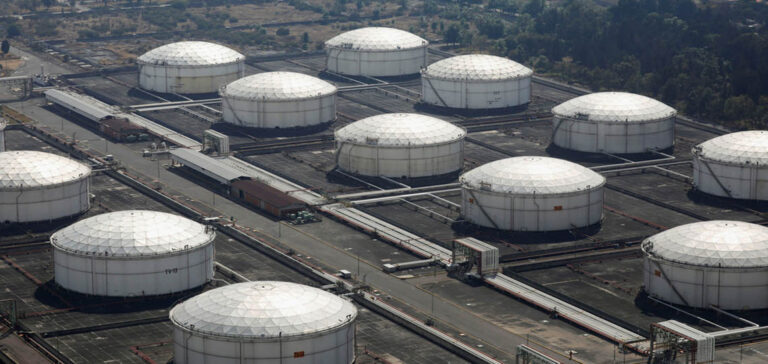U.S. oil inventories fell by much more last week than the market had expected, according to figures released Wednesday by theU.S. Energy Information Administration, a decline that followed a surge in demand for refined products.
Reserves fell by 4.5 million barrels in the week ended October 13, whereas analysts were expecting a drop of only 550,000 barrels, according to a consensus drawn up by the Bloomberg agency. At 419.7 million barrels, commercial inventories had not been so low at this time of year for five years.
Nevertheless, the market reacted relatively little to this publication. At around 15:00 GMT, the price of a barrel of US West Texas Intermediate (WTI) for November delivery was up 1.70% at 88.14 dollars. Brent North Sea crude, due in December, gained 1.49% to $91.24 a barrel.
Factors in inventory decline
This inflexion in inventories is explained in particular by the rebound in crude oil exports (+72% over one week), at their highest level for eight months, combined with a slight fall in imports (-6%).
At the same time, refined products delivered to the United States, a figure considered to be a barometer of US domestic demand, also rose sharply (+11%), reaching their highest level for 20 months. Never before has this indicator been so high at this time of year, according to data from the EIA, which has been publishing it since 1990.
Demand for Distilled Products
Deliveries of distillates, which include diesel, accelerated (+20% over one week), as did those of propane (+154%) and gasoline (+4%), for which demand was said to be slowing. As a result of what appears to be a surge in demand, gasoline inventories fell by 2.4 million barrels, whereas analysts were expecting only a slight decline of 100,000 barrels.
Last week, the refinery utilization rate rose slightly to 86.1%, compared with 85.7% in the previous period. Production remained at the previous week’s record level of 13.2 million barrels per day.
US oil inventories are unexpectedly down, which has led to a rise in oil prices on the market. This significant reduction in reserves is due to several factors, including an increase in crude oil exports and a rise in demand for refined products in the United States. The market was quick to react to this news, with an increase in the price of a barrel of oil.





















